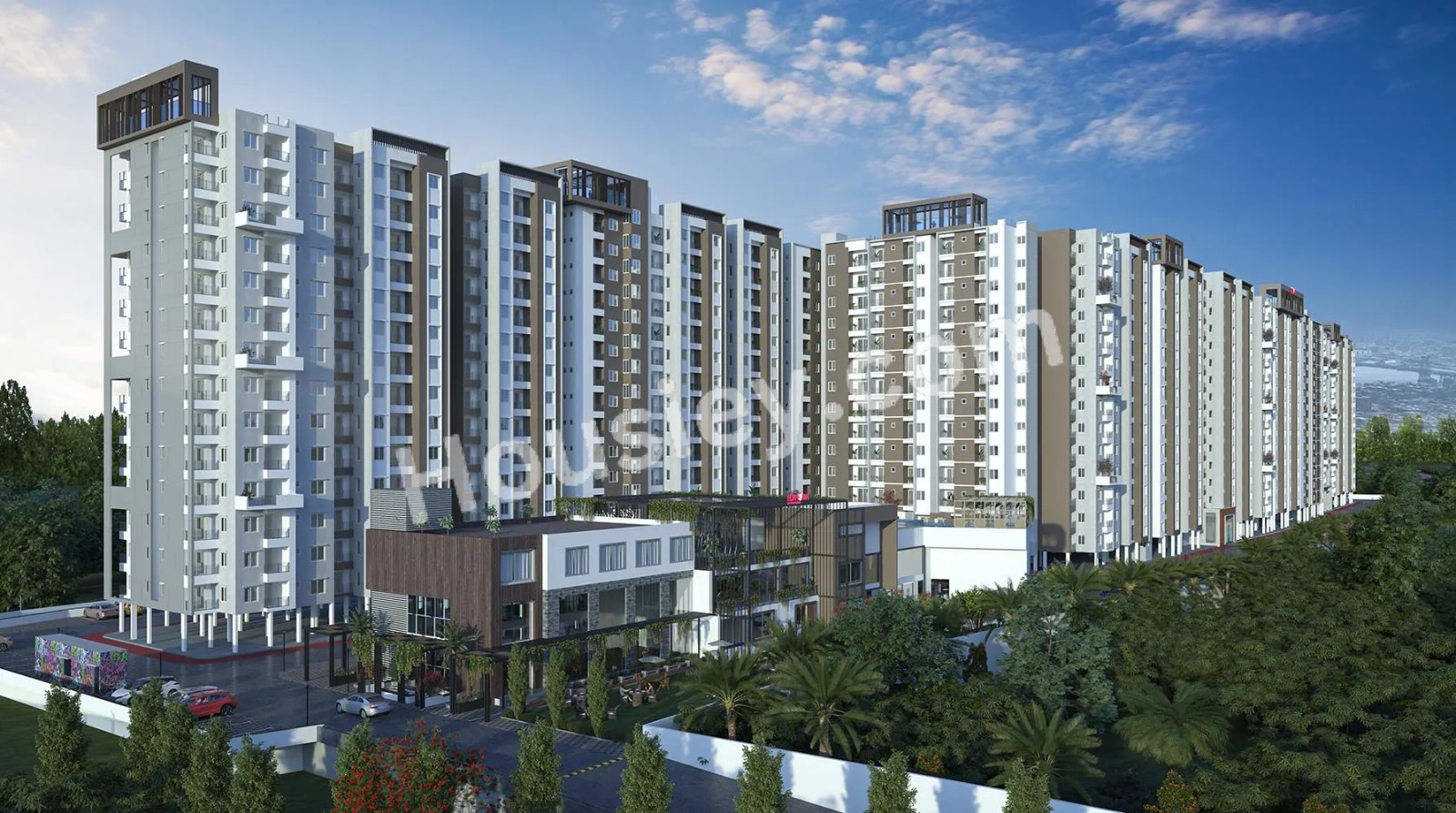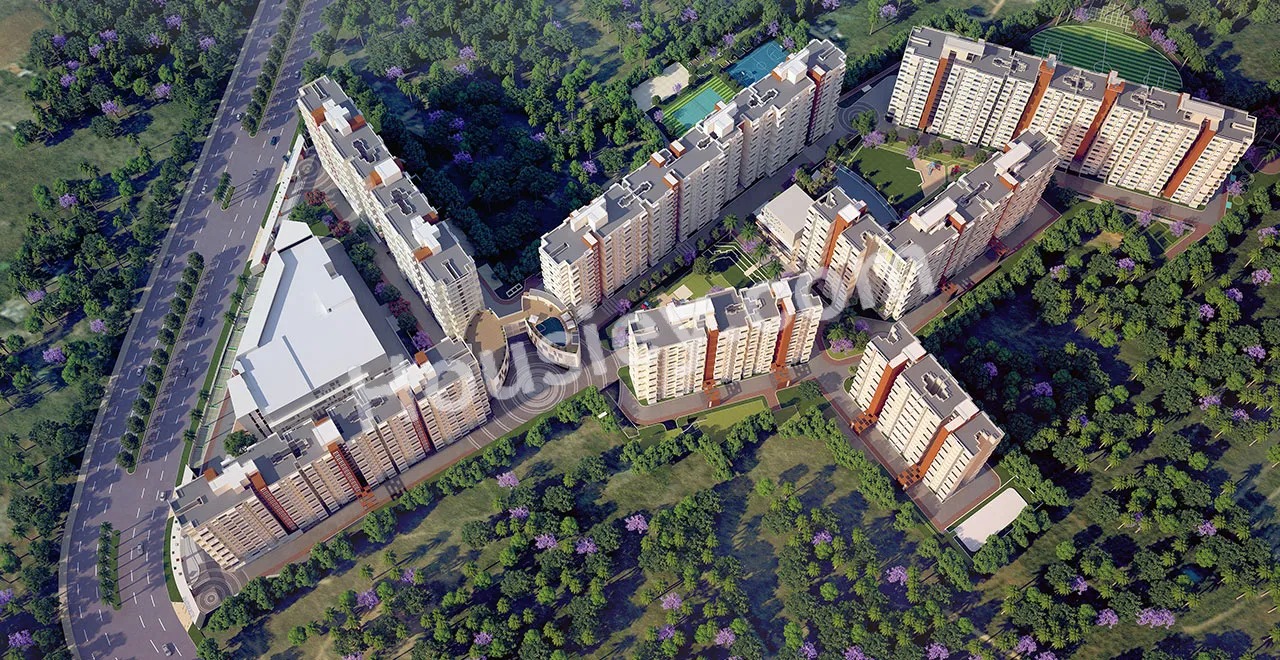Investing in real estate can be highly rewarding, especially if you choose properties with strong growth potential. But how do you identify such properties? Knowing what factors drive appreciation can help you make smart investment decisions.
Here’s a simple guide to help you spot high-potential properties that can deliver great returns in the future.
1. Location is Key
The most crucial factor for property appreciation is location. A property in a well-connected and developing area is more likely to grow in value.
Key Location Factors to Consider:
- Proximity to schools, hospitals, and shopping centers
- Easy access to major highways and public transport
- Presence of IT hubs, business parks, or industrial zones nearby
- Upcoming infrastructure projects like metro lines or flyovers
- Low crime rates and clean surroundings
Example: Areas like Hinjewadi in Pune or Gachibowli in Hyderabad have seen rapid appreciation due to IT hubs and improved connectivity.
See also: The Crown by Majestique: Where Sophistication Meets Modern Living
2. Upcoming Infrastructure Developments
Properties in areas with ongoing or planned infrastructure projects tend to gain significant value over time.
Key Projects to Watch For:
- Metro expansions
- New highways and expressways
- Upcoming airports or railway stations
- Smart city developments
Investing early in such areas can deliver impressive returns once these projects are completed.
3. Growth of Commercial Hubs
Properties close to commercial zones attract working professionals, boosting both rental demand and property value.
Signs of a Growing Commercial Hub:
- IT parks and business districts are developing in the area
- Popular brands opening offices or retail outlets
- Increasing demand for co-working spaces and business centers
Areas like Whitefield in Bangalore and Cyber City in Gurugram are prime examples of such growth.
4. Educational and Healthcare Facilities
Families often prefer homes near reputed schools, colleges, and healthcare facilities. Such locations see steady demand, leading to value appreciation.
Look for:
- Well-known schools and universities nearby
- Hospitals with advanced medical facilities
- Childcare centers and wellness clinics in the vicinity
5. Future Development Plans
Understanding the city’s master plan can reveal potential growth areas. Cities often designate certain regions for future development.
Where to Find Development Plans:
- Local municipal websites
- Real estate reports from trusted sources
- News about upcoming government projects
These insights can help you invest in areas that are set to boom.
6. Social and Lifestyle Amenities
Properties near lifestyle amenities tend to attract more buyers, increasing their demand and value.
Popular Amenities to Look For:
- Shopping malls, multiplexes, and restaurants
- Parks, jogging tracks, and open spaces
- Entertainment hubs and sports facilities
See also: Unmatched Luxury at Evolvus: 2, 3 & 4 BHK Apartments in Central Kharadi
7. Demand-Supply Dynamics
Areas with high demand but limited supply often see faster price appreciation.
Key Indicators:
- Rising rental rates
- Increasing property inquiries in the area
- Limited land availability for new projects
8. Builder’s Reputation
Investing in projects by trusted developers ensures better construction quality, timely delivery, and higher resale value.
How to Verify a Builder’s Reputation:
- Check online reviews and ratings
- Look at the builder’s past projects
- Verify their RERA registration for added security
9. Property Type and Features
Certain property types appreciate faster based on demand.
Popular Choices for Growth:
- Apartments in gated communities
- Villas and row houses in premium localities
- Properties with eco-friendly features like solar panels and rainwater harvesting
10. Rental Yield Potential
Higher rental demand often indicates future property value growth. Areas with growing job opportunities and educational institutions are ideal for this.
Rental Yield Tips:
- Check rental trends in the area
- Analyze vacancy rates and tenant demand
- Look for properties near commercial hubs or colleges
11. Market Trends and Price History
Before investing, analyze past trends in the area to assess its growth potential.
Steps to Evaluate Market Trends:
- Research price history for the past 5-10 years
- Compare property rates in neighboring areas
- Understand the reasons behind price fluctuations
See also: Discover Classy 3 BHK Homes on Bustling Main Satara Road
12. Legal Clearances and Documentation
A property with clear legal status is safer to invest in and has higher resale value.
Essential Documents to Check:
- Title deed and property ownership details
- Building plan approvals
- RERA registration for new projects
Tips for Smart Investment Decisions
- Start Small: Begin with an affordable property in a high-potential area.
- Diversify Investments: Spread your investments across different cities or property types.
- Consult Experts: Work with real estate agents or property consultants for better insights.
- Stay Updated: Follow real estate news to identify upcoming trends.
Final Thoughts
Investing in high-potential properties requires research and a keen eye for growth indicators. By considering factors like location, infrastructure, and rental demand, you can make informed decisions that lead to excellent returns.



